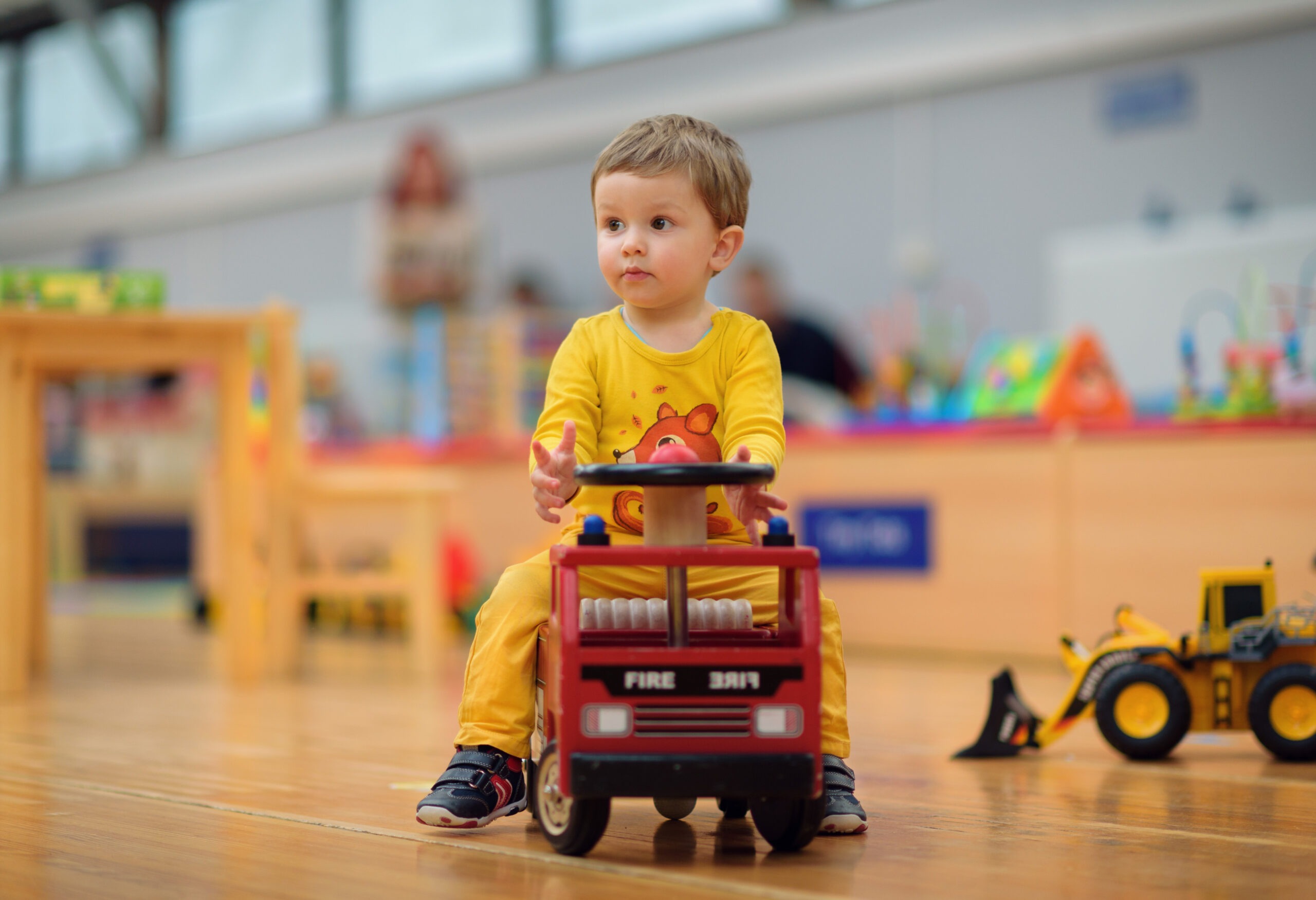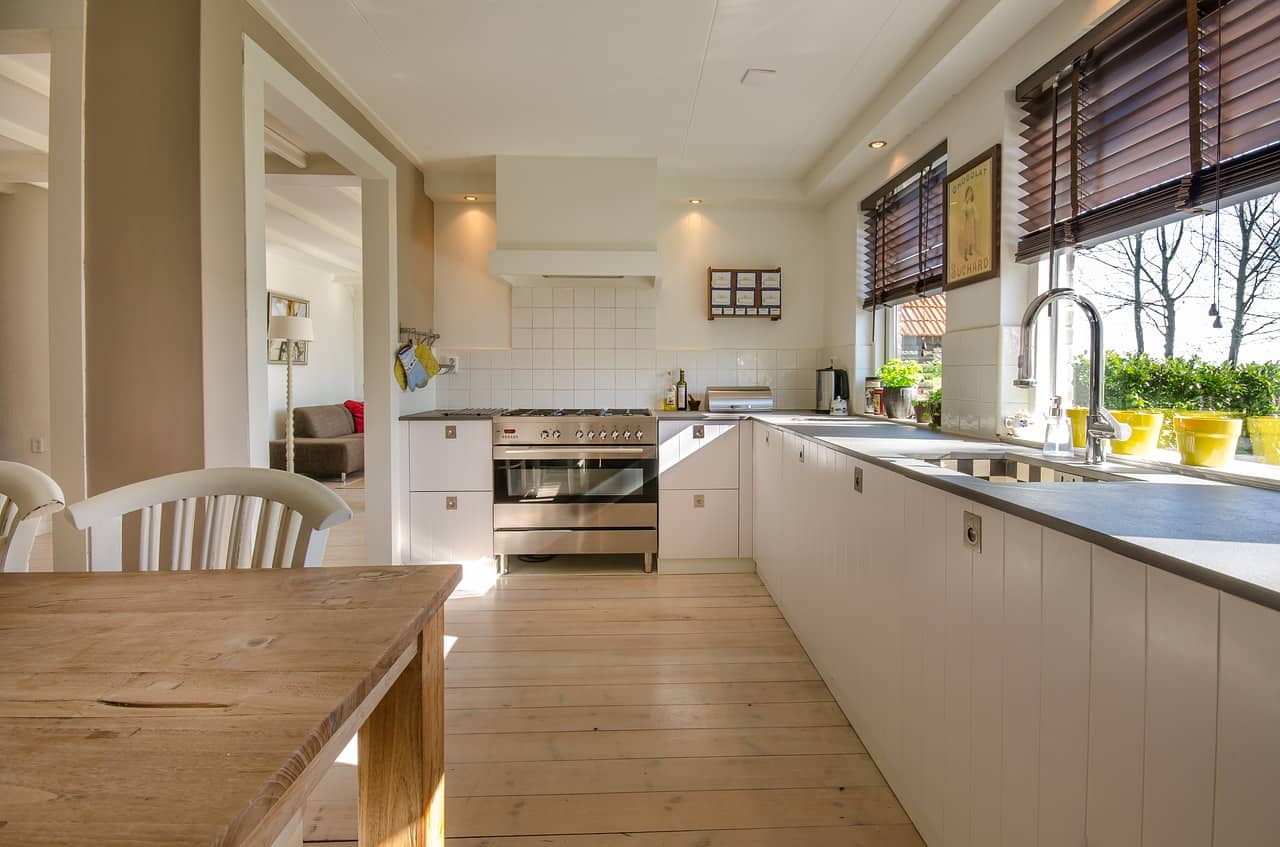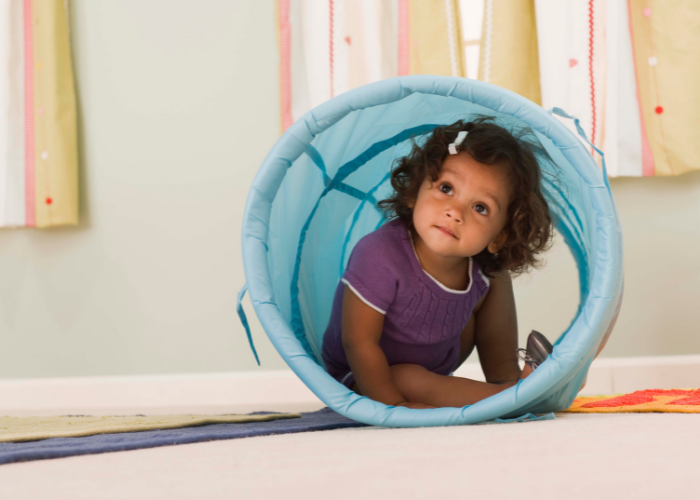You’ve done it — you made it through that first year with your baby and came out on the other side stronger. As you sip your coffee watching your toddler begin to play independently, you may think everything must be downhill from here. Right? Then as you watch, she pulls herself up to standing and takes a hesitant step.
Whether or not you baby-proofed your home before bringing in your bundle of joy, you’ll find you may need to make even more adjustments now that you have a toddler. Your child can now crawl, walk, run and explore. Keeping an eye on him at all times isn’t really possible anymore, so what can you do to toddler-proof your home and give you back your peace of mind?
1. Cover Power Strips and Sockets
Covering outlets is a quick fix and can help prevent dangerous electric shocks. If you didn’t install the specialized plugs before bringing baby home, now is the time. Your little explorer is going to try to get her hands on everything.
2. Replace Window Blinds
Dangling cords on traditional blinds are a strangulation hazard for small children. Luckily, most new models are cordless. However, if you still have older versions in your home, you may want to consider replacing them.
For a cheaper remedy, purchase cord cleats for each set of blinds in your home. Mount these handy contraptions high up on the wall, out of reach of your children. When you aren’t using the pulls, loop them around the cleat, so nothing is left hanging down.
3. Move Hazardous Objects Out of Reach
It may help to bring yourself down to the same level as your child. Look around and see what things you might be able to access. Move all cleaning chemicals, personal care products, alcohol, sharp objects, medications and cords out of arm’s reach.
Also, go through your home and remove small objects that could get lodged in your child’s throat if swallowed. If you’re uncertain, try passing items through a toilet paper roll. Anything that fits through is too small and should be moved higher or stored away.
4. Set Up Door and Window Guards
Toddlers can so easily get their fingers slammed in doors or windows. Install specialized guards to keep them from closing all the way. Window guards will also keep your little one from falling out of an open window.
5. Install Fencing
If your toddler plays outside a lot, having a fenced-in yard will allow you to feel you can look away for brief moments without the fear they’ll run into the road. When deciding to put up a fence around the perimeter of your property, check zoning laws and property lines.
Fencing is an absolute must if you have a pool or pond in your yard. Drowning is the number one cause of accidental death for 1-4-year-olds in the US. Fences come in styles to match any decor or landscape, so they don’t have to be an eyesore. Install a gate with a lock to prevent your toddler from accidentally getting in.
6. Block Access to Stairs
If you have stairs in your home, your toddler will at some point start to experiment with them. Looking away from your child for only a moment could be all the time they need to get to the stairs and have a fall. Installing a gate at your stairs will give you some more freedom and keep your little one safe.
7. Switch to a Toddler Bed
Once your child can stand and shows an interest in climbing out of their bed, it’s time to consider switching to a “big kid” bed. Another clue it may be time to transition is if their chest sits above the top rail when standing. Small children who try to climb out can fall and seriously injure themselves.
Toddler beds are made specifically for this age group — they’re low to the ground and have rails or raised sides to prevent falling out during the night. However, toddler beds don’t last them forever. If you want a more permanent solution, buy a twin frame with several height settings, and put it on the lowest option. You should also consider installing rails.
8. Cover Sharp Furniture Corners
Kids tend to be reckless and will walk into things you didn’t think possible. Avoid head injuries by covering any sharp corners on your furniture. The two most common types of corner guards are high-density foam and silicone rubber.
Foam provides more cushion on impact but is easy to chew and doesn’t blend in well with furniture. Silicone guards are hardly visible and aren’t easy to chew, but they’re not as cushioned. Both are fairly easy to apply and remove without damaging your furniture.
9. Secure Cabinets and Drawers
Now that your little one is more mobile, they can get into trouble much faster. Toddlers are constantly learning about the world around them, and they do this by exploring. While having a curious tot is great, you can’t possibly watch them every moment. Securing cabinets and drawers within their reach is the best way to keep your child safe when you aren’t watching them.
Spring-action and magnetic locks are nice because you can’t see them from the outside.
The other two types are more of an eyesore, but they may be good options depending on your home’s types of cabinets and drawers. Slide locks work well for double doors, and adhesive straps have many other uses.
10. Anchor Heavy Furniture
Since 2000, 581 people have died from furniture tip-overs — four out of five of those deaths were children. Furniture that is poorly designed, on carpet or on a slanting floor increase the risk of accidents. Avoid the possibility by buying inexpensive anchor kits for each piece of furniture that is heavy and tall, like TVs, dressers, bookshelves and cabinets.
Conclusion- Don’t Try Everything At Once
You may be in a panic thinking you need to get all the supplies and knock this out in a weekend, but you’ll more than likely get burnt out if you try. Also, some of these changes are expensive.
Do your best with what you have and slowly make improvements as you go. Each child has different tendencies, so address their current problem areas first and move on from there.
About the Author

Rose Morrison is the managing editor of Renovated, a home living site where she loves to share home renovation ideas to help people live their best DIY life. She’s especially passionate about sustainable living and incorporating greener habits into everyday life. For more from Rose, you can follow her on Twitter.



